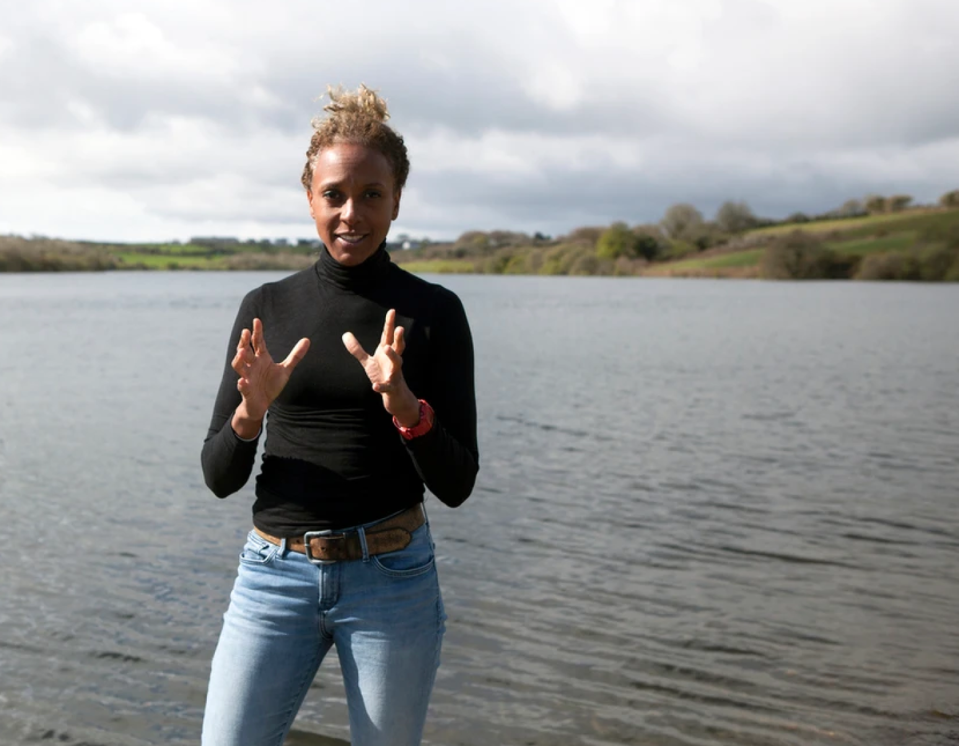Springwatch presenter says she dislikes calling African animals by their English name
- Oops!Something went wrong.Please try again later.
Springwatch presenter Gillian Burke has said she prefers to call animals by their traditional Swahili names rather than their English monikers.
Burke, who was born in Kenya and now lives in Cornwall, joined the Springwatch team in 2016 soon after Martin Hughes-Games claimed he was axed due to diversity targets.
The biologist admitted she found calling animals by their English names uncomfortable but acknowledged naming could be “a useful tool for storytelling”.
Writing in BBC Wildlife magazine, Burke said the English names for east Africa’s “iconic” wildlife” tended to “jar” when spoken aloud. “At least to my ear,” she added.
“In my own writing, I prefer re-introducing these familiar animals by their Swahili names,” Burke said.
“Ndovu (elephant), twiga (giraffe), fisi (hyena) and my personal favourite, because I used to love how my dad said it, kongoni (hartebeest).”
However, the presenter added that Swahili is a mixture of other languages and she would need to “dip deeper” to find the “true indigenous animal names”.

Burke pondered whether “we are unwittingly wielding some form of power by naming wild animals” and said there was an “inequality” in “who gets to do the naming”.
The Springwatch presenter added Latin names for animals served as a useful “anchor point” as “no matter where scientists are in the world, they know they are talking about the same species.”
“All this is well and good,” she said. “But…what we call living things matters.”
It comes after Burke’s Springwatch co-host Chris Packham said he would not drink anymore Heineken after the company felled thousands of trees in one of its orchards.
The BBC reported thousands of apple trees had been cut down at Penrhos Farm in Wales, which Packham called a “tragic waste of a fabulous resource”.
Speaking to Sky News, the presenter said Heineken’s decision to fell the trees in order to sell the land was “immoral”.
"In a biodiversity crisis, I would say it’s bordering on unethical and certainly immoral because resources like that ought to be passed on to people who can use them to enrich wildlife and human life," he said.
"I’m not drinking any more of it, because I just think we want companies in our lives that are looking after our planet and our future and our children’s future.”

